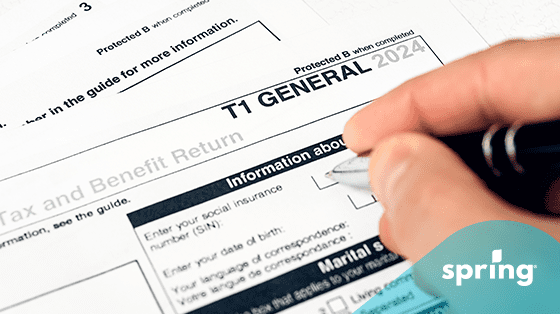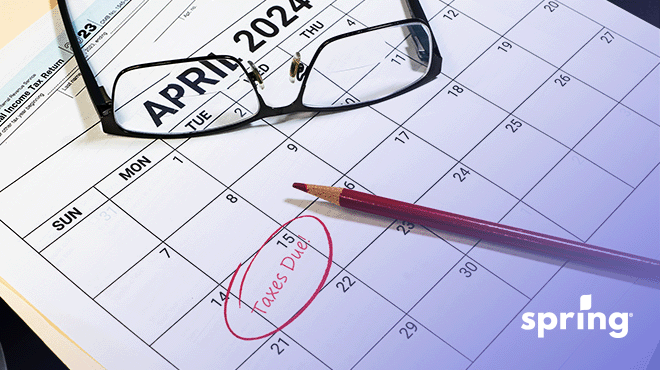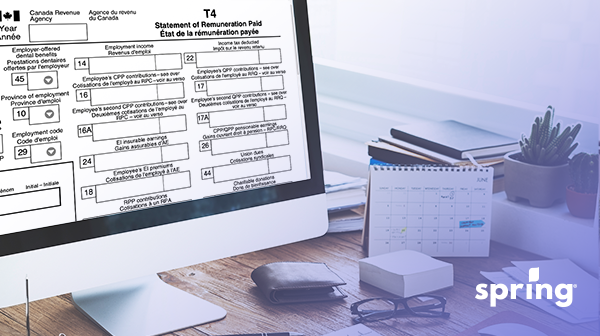Some of those options can have much higher interest rates than others. Especially if you can’t pay the money back in full right away. That’s why it’s important to do your research before you borrow money.
Two of the most popular ways you can access funds, if you don’t have a bank account overdraft, are through personal loans and credit card cash advances. Both of these types of loans have their positives and negatives. They also affect your credit score in different ways.
Personal Loans and Credit Card Cash Advances: How They Affect Your Credit Score
Believe it or not, not all credit accounts affect your credit score in the same way. This is because there are actually a few different types of credit and they all affect your credit score differently. Personal loans are a form of installment credit while credit card accounts are a form of revolving credit.
Personal Loans
How installment credit works, specifically with personal loans, is that it’s based on your payment history. The amount of the loan makes no difference credit wise. As long as you make your monthly payments on time, you are having a positive impact on your credit score. Even once the loan is paid off, it will show that positive history on your credit report. It will also be reflected in your credit score.
Credit Cards
When it comes to credit cards, or any form of revolving credit line, your payment history as well as your balance will reflect your credit score. This is because revolving credit is a form of credit you can spend and pay off as much as you’d like. The general rule with credit cards also, is you want to keep your balance at least 35% or less of your total credit limit. Keep in mind that this is your total limit, not just the one form of revolving credit. The higher your credit card balance, the lower your credit score will be.
Personal Loans and Credit Cards: How the Interest Rates Differ
With both credit cards and personal loans, the interest rates differ depending on the one that you choose. Your credit score can make a big difference on which credit card or personal loan you get approved for as well.
Personal Loans
The interest rate on personal loans varies depending on the Bank of Canada’s prime interest rate. That said, they can generally range anywhere from 5% to 34.99%. It just depends on the loan that you are approved for and the lender that you choose.
With most personal loans as well, they are considered to be open loans in the sense that you can pay them off in full whenever you choose. With personal loan interest rates, they can either be simple interest loans or compound interest loans. Credit card interest rates are compound interest.
Simple Interest Personal Loans
Simple interest loans mean that you only pay interest on the outstanding principal amount of the loan (the amount you took out, not including interest). The higher your principal amount owing is, the more interest you pay. With your first loan payment, the majority will go towards interest.
As the principal amount gets small, less money goes towards interest payments and more gets put towards the principal. By the time you are near the end of the loan period, the majority of your payment is being put towards the principal. This continues until the loan is paid in full.
Compound Interest Personal Loans
Compound interest loans work a bit differently. The amount you pay is not only based on the amount that you owe for the principal of the loan, it also includes the interest accrued on the loan. This only happens if you miss a payment, or make a late payment.
Any unpaid interest accrued will be added to the balance of what you owe. For this reason, compound interest is sometimes referred to as interest on interest. Depending on the type of financing you get, the compounding periods will vary. With a compound interest personal loan, the accrued interest is compounded on a specified term, usually monthly.

Credit Card Interest
The interest on a credit card varies depending on the type of credit card that you get. That said, the general and most common interest rate with credit card issuers is 19,99%. With most credit cards there is also an increased interest rate for cash advances. This cash advance APR is usually 2% to 3% higher than the average interest rate. This is known as the cash advance fee and it applies for each cash advance transaction.
When you make a purchase with your credit card, there is a grace period and you usually don’t have to start paying interest until the credit card bill date. Usually 30 days or so after the purchase. If you pay it off before then, then you don’t pay interest on your purchases. If you don’t pay it within that period you will have to pay interest.
Credit card interest is different from personal loan interest. Credit card interest is compound interest that compounds daily, once the grace period has ended. Your credit card provider will add interest charges every day that are based on your balance from the day before. These are then added up every month to determine your monthly interest amount.
This is why credit card debt can be much more difficult to pay off than a personal loan. While it is more convenient, being that you don’t have a set amount to pay towards the principal every month, that flexibility can end up costing you substantially more in the long run.
Personal Loans and Credit Cards: Which is Better for Debt Consolidation?
Debt can slowly creep up on you until it can be difficult to make all of the payments. Before that happens, it could be a good idea to get a consolidation loan. These loans are a great way to put all of your payments amalgamated into one payment every month.
When it comes to choosing what type of loan is best for consolidating your debt, an unsecured personal loan is the best option. This is because they have predetermined payments for a set period of time, usually with a simple interest rate.
Using a credit card cash advance not only gives you a higher interest rate, but you have daily compound interest on that amount as well. This could make your debt even more difficult to pay off, especially if it will take you an extended period of time to pay off the balance. To avoid interest piling up, you would have to make frequent, large payments.
It’s also important to note how a credit card cash advance works. There is a limit, usually 30% or your limit, on what can be taken out. Often your debt is higher than the amount allowed to be taken out by your credit card provider.
Personal Loans and Credit Cards: Which is Easier to Get?
In order to get personal loans and credit cards, you do need to have a decent credit score. That said, credit cards do tend to be easier to get than personal loans. They do however have a lower limit than personal loans.
When it comes to getting a credit card, your credit score and total income amount make a difference in how much you are approved for. Just because you get approved doesn’t mean you get a high limit. Surprisingly as well, having a low limit credit card is actually not good for your credit score. Say your limit is $500.
You need to keep your limits under 35% of the credit limit. That means your balance needs to be under $175. Not being able to keep this limit can hurt your credit score making it more difficult for you to get approved for financing in the future.
Personal loans are slightly harder to get than credit cards, but not that much more. The thing about personal loans is that it’s more difficult to get approved for a good interest rate than it is to get approved. You do need to have some form of credit history though, for most lenders to approve you.
How Credit Impacts the Type of Personal Loan You Can Get
There are plenty of options when you are applying for a personal loan. The most popular is an unsecured loan. You don’t need a great credit score to qualify for an unsecured loan, but it will help you get the best interest rate. If you have a lower credit score, it could be more difficult for your approval.
In some cases, with a poor credit score, you may not be able to have an unsecured loan. This could result in having to get a secured loan or a cosigner. A secured loan is a bit more risky because if you are unable to make your payments, you may lose the item you put up for collateral.
Cosigner loans are difficult because it can be difficult to get a cosigner. The person who is signing for you is basically taking responsibility for the loan if you are unable to make the payments. They must also have a good credit score in order to get approved.
CTA: If you are looking for a personal loan, Spring Financial can help. We offer personal loans ranging from $500 – $35,000, with rates starting at just 9.99%. Apply online today.
Disadvantages of a Personal Loan Compared to a Credit Card
While personal loans can be better for your credit score, there are some disadvantages to personal loans as well. In some ways, credit cards actually make up for these disadvantages.
- Fixed monthly payments: While fixed payments are a great way to maintain a budget, sometimes they can get a bit expensive. Credit cards only have a set minimum monthly payment, the principal can be paid at any time.
- Fixed loan amount: With personal loans, once you receive the loan, that is the maximum amount of money that you can get. As you pay it off, you can’t continue to use the loan amount either. Credit cards, on the other hand, are revolving. This means that once you pay off your card you can use it again. You can actually continue to use it as long as it isn’t maxed out.
- Interest rates: If you have poor credit, your interest rate on a personal loan can be quite high. With credit cards, the interest rates are the same for everyone. If you pay off the amount aweing before the date that your bill comes out, you can avoid paying any interest.
- Extra fees and penalties: Some personal loans give you penalties for paying off your loan early or making extra payments. There are also administrative fees that are added to your loan amount. Sometimes even insurance amounts. This is not the case with most credit cards.
Difference Between a Cash Advances and a Personal Loan
There are a few major differences between cash advances and personal loans. Personal loans are a one time only loan that remains until you pay the balance. They have a set monthly payment and interest rate. Cash advances work the same as a traditional credit card purchase, except for the fact that you withdraw money from the ATM. In some cases you can also do a merchant cash advance. The only difference is that it has a higher interest rate. Here are the most significant differences.
- Payment Schedule: Personal loans have a fixed payment schedule. Credit card payments can be made at any time. The monthly payment listed on your credit card statement is just enough to cover the minimum payment (the interest). Making the minimum payments can make paying off the card take a long time.
- Interest Rates: Interest rates on credit cards usually are around 19.99%. Interest rates on personal loans range anywhere between 5% and 34.99%. You need to keep in mind though that personal loans are more often than not simple interest. Those that are compound interest are only done so monthly with accrued interest, unlike credit cards that are compounded daily. Even though 19.99% doesn’t sound as bad as 34.99%, it’s actually a very high interest rate.
- Effect on Credit Score: With credit cards, your credit score is affected not only by making your payments on time, but your balance as well. Personal loans affect your credit score by payment history only.
- Cash Amounts: With a personal loan you can take out the whole amount of your loan in cash. Credit cards have a cash advance limit. It’s usually 30% of your total credit limit on your card. Your credit card company may have a different limit though.
Loans or Credit Card Debt: Which is Better When Getting a Mortgage?
When it comes to getting a mortgage, you want to pay off your highest interest rate debt first. That is usually your credit cards, unless you have payday loans. The reason for this is that your debt to income ratio makes a big difference on what your mortgage amount can be. You want to make your debt to income ratio as low as possible.
Final Thoughts
When you are looking to borrow money, there are a lot of things to consider:
- What credit limit are you looking for?
- Where are you applying?
- Do you need a short term loan or a long term loan?
- Do you need to withdraw cash?
All of these situations will make a difference in the way you choose to borrow money. If you just need a small amount of money you can use your overdraft through your bank or credit union. There are overdraft fees but they are relatively small.
You can also go with a line of credit instead of a crest card. Or you can choose to go with a personal loan. Personal loans typically are the most popular. You can even do a mix of these different credit lines since they have separate credit limits.
Whatever you choose to do for your personal finance situation, whether you need a lump sum or just a little more cash, there are plenty of options to choose from. It’s important to weigh the pros and cons and figure out which option is best for you.








